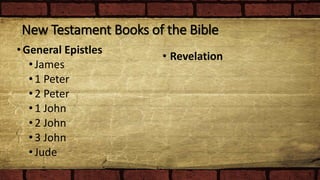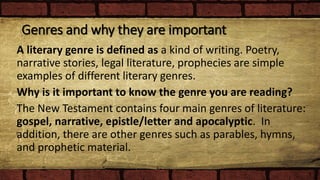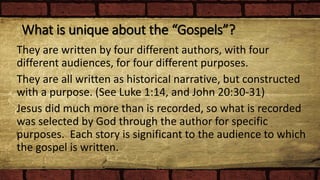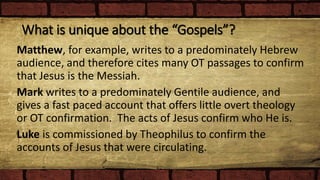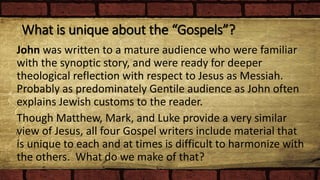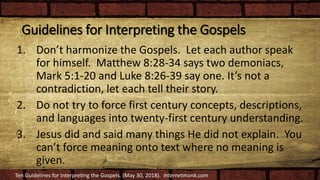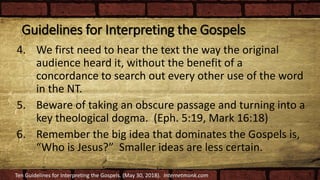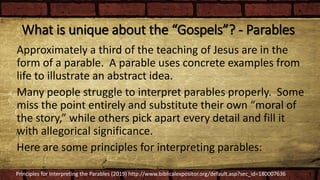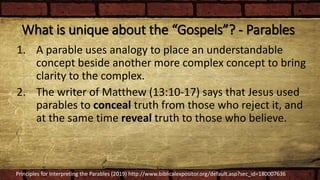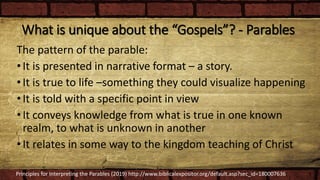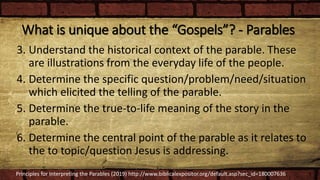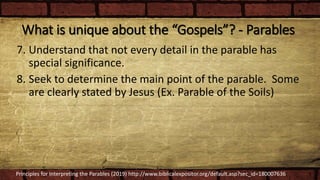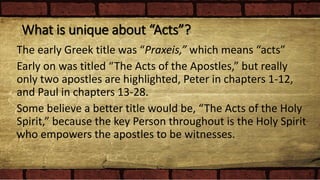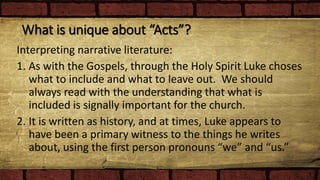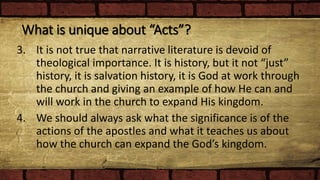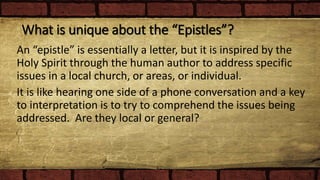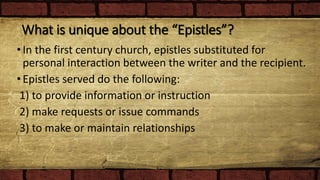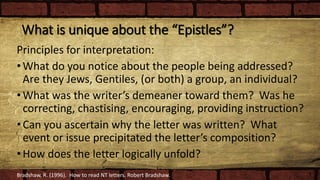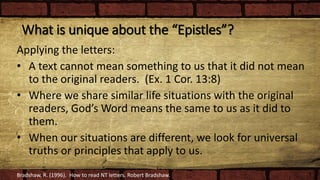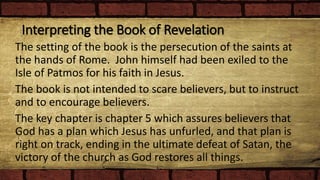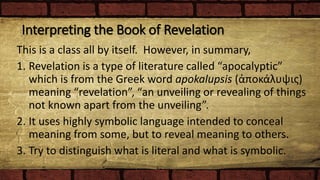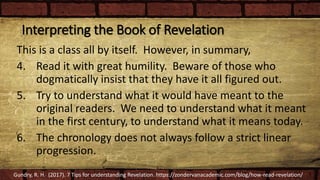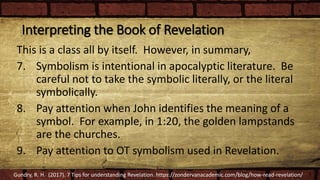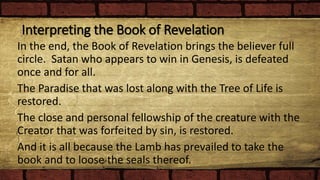This document provides guidance on interpreting various books and genres of the New Testament. It discusses key principles such as understanding the historical and cultural context, discerning between descriptive and prescriptive texts, and recognizing that each Gospel was written for a different audience and purpose. Specific tips are given for interpreting parables, Acts, the Epistles, and the book of Revelation. The overall message is to approach each text individually while seeking the universal truths and keeping the overall message of Scripture in mind.
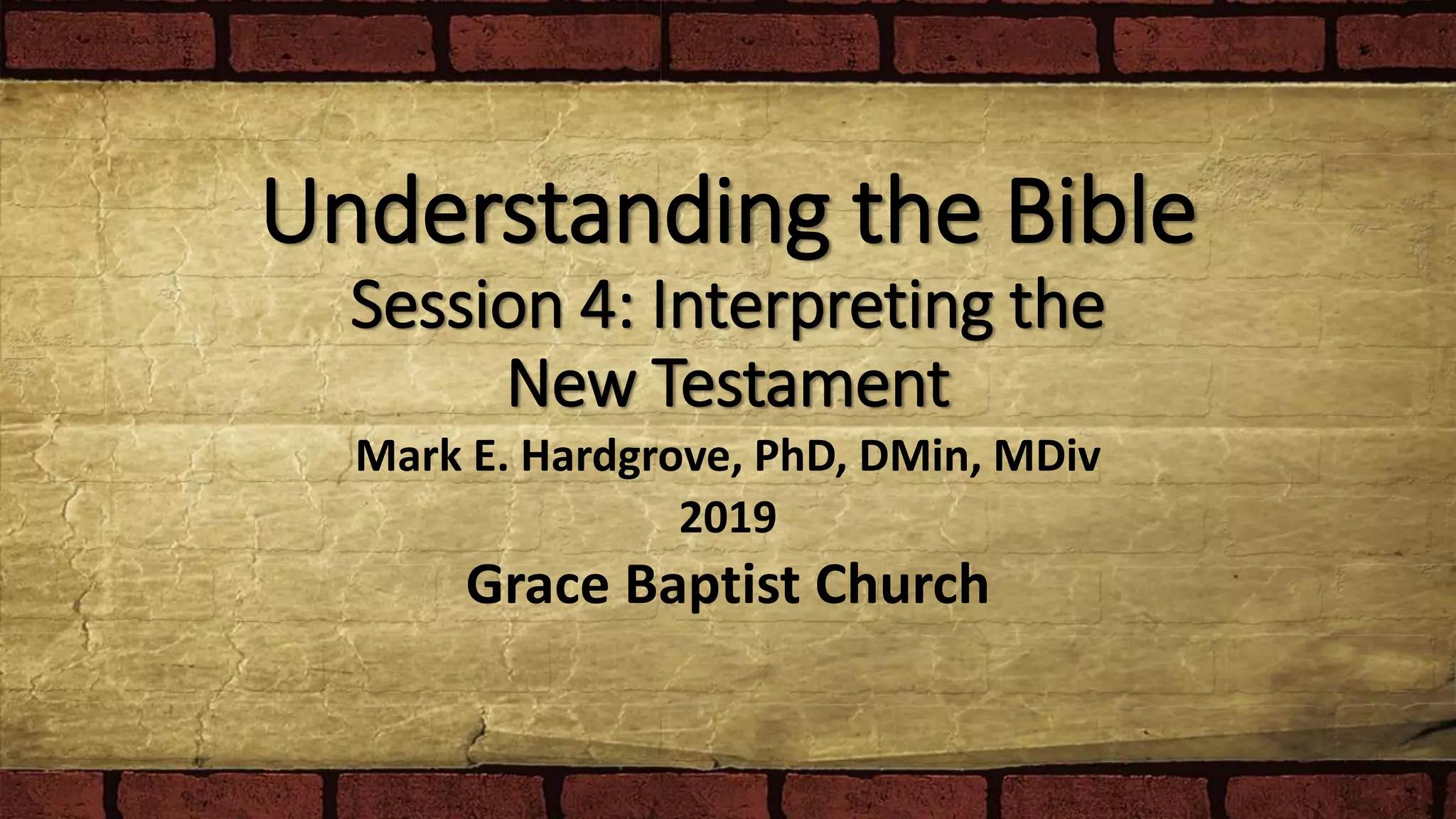
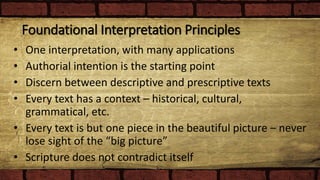
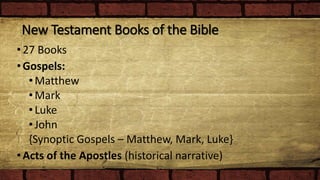
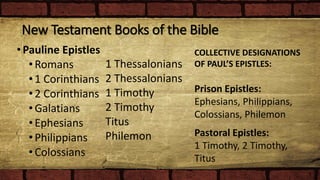
![New Testament Books of the Bible
•Hebrews - Why not Paul?
Compare: Galatians 1:11-12 with Hebrews 2:3
Gal. 1:11 But I make known to you, brethren, that the gospel which
was preached by me is not according to man. 12 For I neither
received it from man, nor was I taught it, but it came through the
revelation of Jesus Christ. [Claims direct revelation]
Heb. 2:3 how shall we escape if we neglect so great a salvation, which
at the first began to be spoken by the Lord, and was confirmed to
us by those who heard Him, [Is a second generation Christian]](https://image.slidesharecdn.com/understandingthebiblesession4-190402182625/85/Understanding-the-bible-session-4-5-320.jpg)
